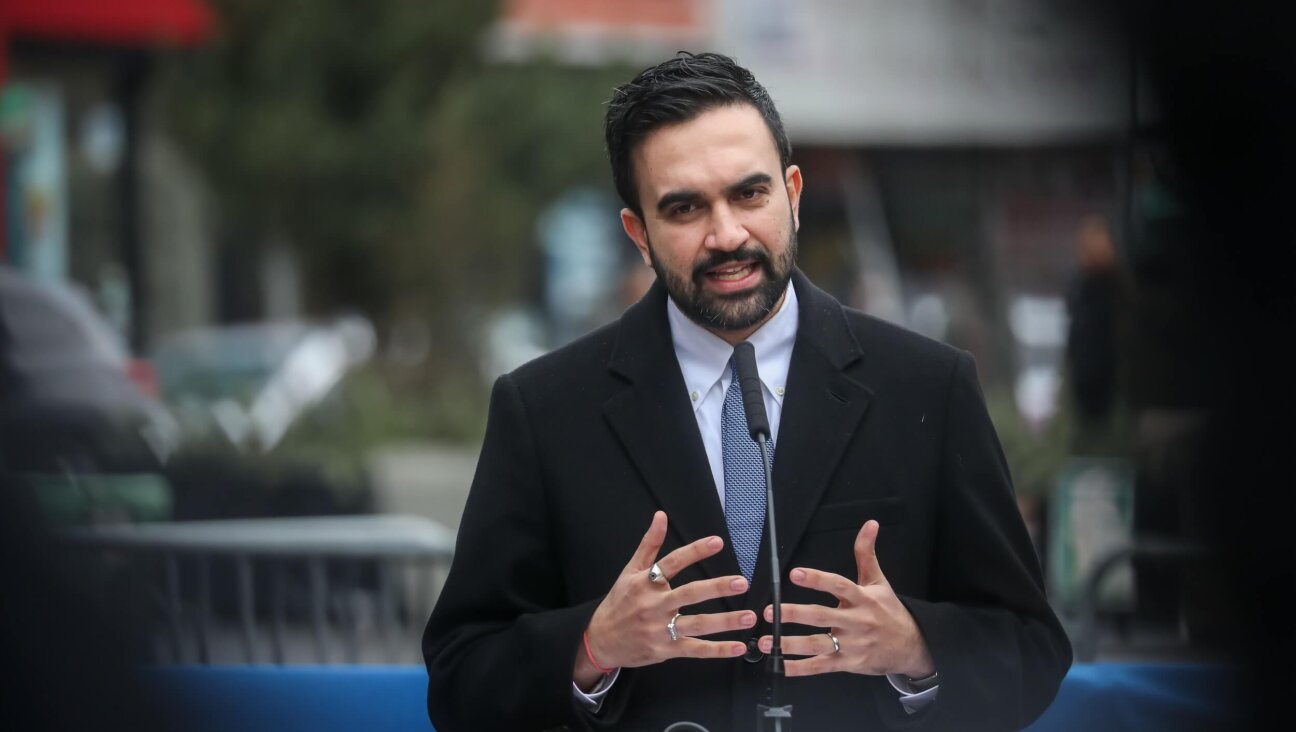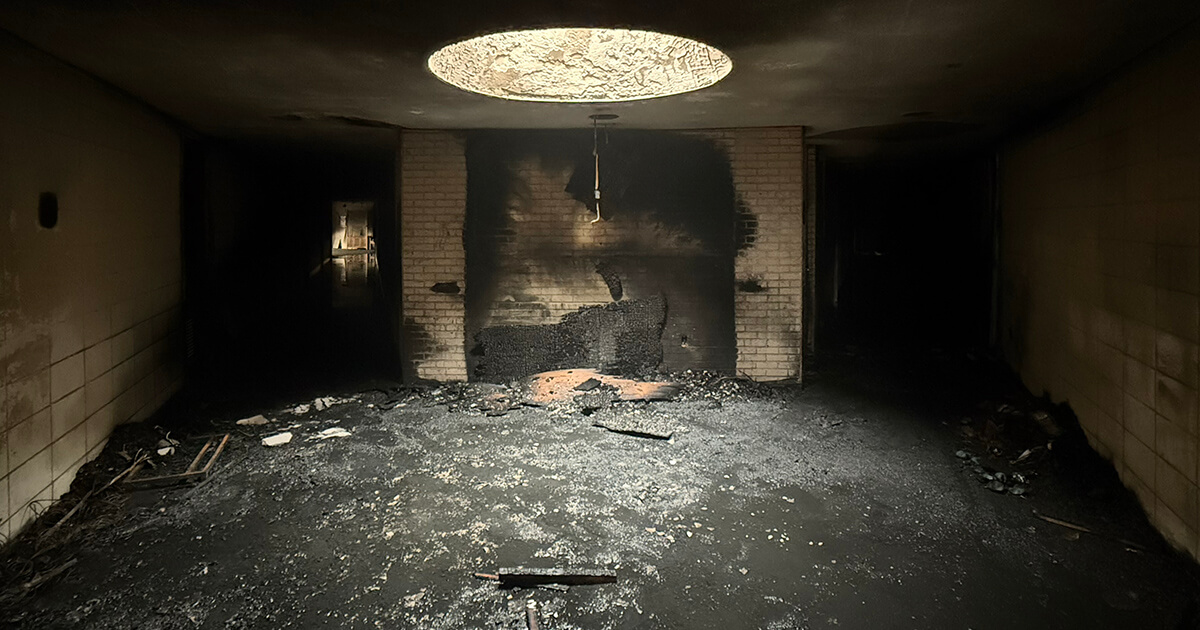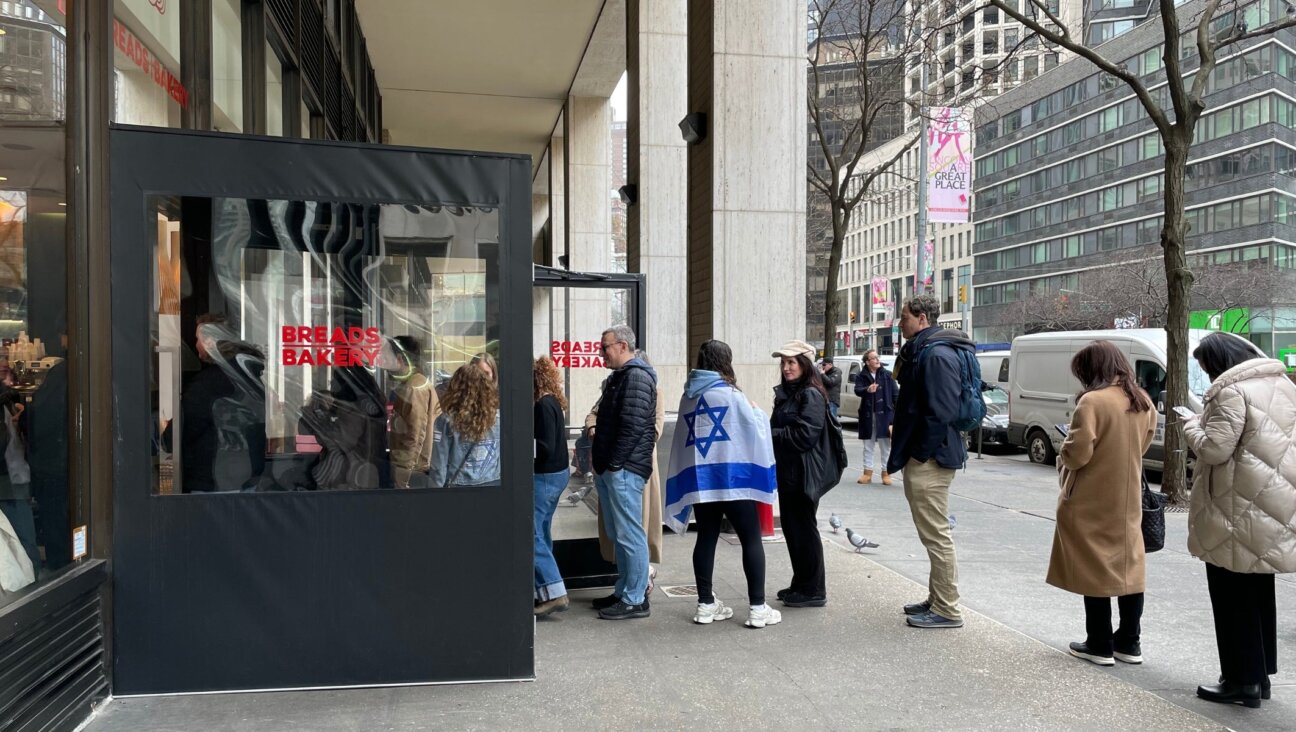Supreme Court Upholds Town’s Pre-Meeting Prayer

Prayer Fight: Susan Galloway, who is Jewish, speaks as Supreme Court hears case about town hall prayer meeting. Image by getty images
The U.S. Supreme Court on Monday upheld the right of government entities across the United States to allow sectarian prayers prior to public meetings.
The court said on a 5-4 vote that the town of Greece in New York state did not violate the U.S. Constitution’s ban on government endorsement of religion by allowing prayers before its monthly meetings.
In a decision that is likely to guide how local governments throughout the United States handle the question, the court said that officials in Greece did not violate the law when picking prayer-givers, who were overwhelmingly Christian.
Even the plaintiffs challenging the practice in the Rochester, New York, suburb of 100,000 people, conceded that some types of nonsectarian prayers were permitted under the Constitution.
The difficulty facing the justices was how to decide how courts should consider when a prayer could violate the First Amendment, which requires the separation of church and state.
The court was divided along ideological lines, with the conservative wing of the court saying the prayers were acceptable, while the liberal justices said the practice violated the First Amendment.
Justice Anthony Kennedy, the court’s swing vote, wrote the majority opinion, saying the town’s prayers were consistent with the high court’s 1983 precedent in a case called Marsh v. Chambers. That case allowed prayers before legislative sessions based in large part on the historical nature of the practice.
Although the policy in the town of Greece does not embrace a particular religion, in practice all members of the public who gave a prayer were Christians until some residents filed suit in 2008.
‘OFFENSE’ VS ‘COERCION’
Kennedy wrote that public prayers need not be nonsectarian.
“To hold that invocations must be nonsectarian would force the legislatures that sponsor prayers and the courts that are asked to decide these cases to act as supervisors and censors of religious speech,” Kennedy wrote.
Residents Susan Galloway, who is Jewish, and Linda Stephens, an atheist, filed the suit, saying the practice made them uncomfortable.
The court ruled that the content of the prayers did not constitute coercion, although the majority was divided on the legal rationale on that point.
Kennedy wrote that “offense … does not equate to coercion.”
Writing on behalf of the four liberals, Justice Elena Kagan said that for years the Greece prayers were sectarian and the town did nothing to encourage members of other faiths to give the prayers.
“In my view, that practice does not square with the First Amendment’s promise that every citizen, irrespective of her religion, owns an equal share in her government,” she wrote.
The Alliance Defending Freedom, a conservative legal group that represented the town, welcomed the ruling.
“The Supreme Court has again affirmed that Americans are free to pray,” said David Cortman, one of the organization’s lawyers.
The case reached the high court after the 2nd U.S. Circuit Court of Appeals in New York ruled against the town in May 2012. A district court had previously supported the town’s position by dismissing the lawsuit filed by Galloway and Stephens.
The case is Town of Greece v. Galloway, U.S. Supreme Court, No. 12-696.













